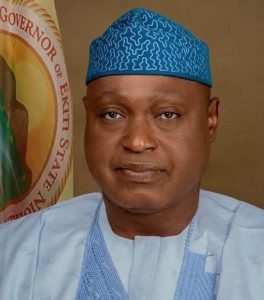Why we Fined Meta, WhatsApp, Instagram, Facebook Operators – FG

By Daniel Faith
The Federal Government has reaffirmed its commitment to holding Meta Platforms accountable for data protection breaches, stressing that its ongoing probe is aimed at ensuring strict compliance with Nigerian laws.
The National Commissioner of the Nigeria Data Protection Commission (NDPC), Dr Vincent Olatunji, disclosed this in Abuja on Friday during a capacity-building programme for government workers tagged “Innovating with Privacy: Building Trust in Government Digital Services.”
$220m Fine and Multi-Agency Probe
Olatunji explained that the investigation into the US-based tech giant, owners of Facebook, Instagram, WhatsApp, Messenger and Threads required a multi-agency approach to ensure transparency and accountability.
Recall that the Federal Competition and Consumer Protection Commission (FCCPC) had recently slammed Meta with a $220 million fine for alleged breaches of user data.
“We are not necessarily being punitive. However, any institution that fails to cooperate or comply with our laws will be sanctioned,” Olatunji warned.
Data Privacy, Trust and Digital Governance
The NDPC boss stressed that the protection of citizens’ data was central to Nigeria’s digital future.
“We are concerned about the ways and manners in which data of citizens are collected and managed in Nigeria and outside Nigeria. In so doing, we also consider the economic values for the citizens and the country, and we want the global best standards and practices to be entrenched here,” he said.
He added that the future of governance depends on public trust, which can only be secured through strong privacy safeguards.
“The future of government is digital, but the success of digital governance will depend on one thing above all: trust, and privacy is the foundation of that trust,” Olatunji noted.
Building a Privacy-First Digital Nigeria
Olatunji urged collaboration across the public and private sectors, civil society, and citizens, noting that building a digital nation anchored on privacy would not only protect Nigerians but also position the country as a model in Africa.
“Together we can build a citizen-centric, innovative digital nation that others will look to as a model of trust and progress,” he concluded.







